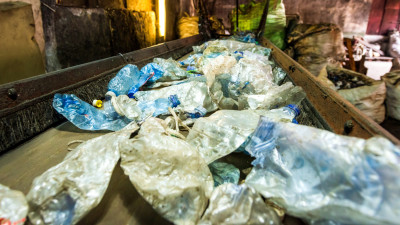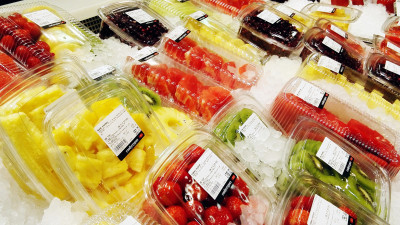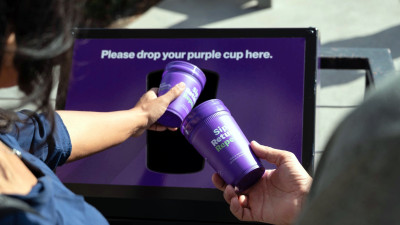A recent report from Transparency Market Research revealed that sustainability awareness is driving the demand for paper packaging. Paper is the largest material type in the packaging market and is growing, since it is both economically and environmentally appealing.Volatility in raw material prices, energy costs, and the global economy have significantly affected the global packaging market, motivating companies to develop recyclable and reusable packaging.
Trending:
Sustainability Demand Spurs New Packaging Innovations
A recent report from Transparency Market Research revealed that sustainability awareness is driving the demand for paper packaging. Paper is the largest material type in the packaging market and is growing, since it is both economically and environmentally appealing.
Volatility in raw material prices, energy costs, and the global economy have significantly affected the global packaging market, motivating companies to develop recyclable and reusable packaging.
One of the largest industries for paper packaging is food and beverage. In line with the report’s findings, companies are citing reduced negative environmental impact as one of the reasons for packaging improvements. And research released earlier this month from Tetra Pak and the Global Footprint Network suggests that while largely unaware of the severity of global resource scarcity, 86 percent of 1,000 consumers surveyed agreed that if they knew the use of renewable packaging contributed to reducing carbon emissions, it would impact their choice of packaging.
Trending consumer demands for healthier options, customization and sustainability also prompted Nissin Foods USA to redesign Cup Noodles’ instant ramen packaging. The more spacious cup capitalizes on a recent consumer trend — adding natural ingredients to packaged foods to create (relatively) healthier, customized meals. Marketing images depict the new cup overflowing with added ingredients such as vegetables, shrimp and cheese.
Formerly sold in foam cups, the new cups are microwave-friendly and “more sustainable,” but it is unclear what the new packaging materials are made from, based on Nissin’s press release. But aside from the extra room, the company highlights the fact that Cup Noodles now have less overall exterior packaging material. According to Nissin, the improvements created a 20 percent reduction in Cup Noodles’ overall carbon emissions.
“By changing our packaging, we’ve made enjoying the same noodles our consumers love even easier by putting it in a new and improved cup that is now microwavable, customizable, and more sustainable,” said Linda Chung, VP of Corporate Communications at Nissin Foods USA.
Meanwhile, US-based Sealed Air Corporation has developed thinner, mechanical-abuse-resistant bags, according to Global Meat News. The new Cryovac OptiDure bags are ideal for hard food products — such as dried processed meat, terrines, smoked bacon, red meat on the bone, and Grana cheese — and are expected to reduce leakage and therefore contamination risk and food waste along distribution chains.
“Superb shrink behaviour, paired with a thin structure, achieves abuse levels equivalent to thicker materials while reducing negative environmental impact. These abuse-resistant bags are the key to food safety and food waste reduction, even along distribution chains,” the company says. “This opens doors to export possibilities that may previously have been out of reach.”








